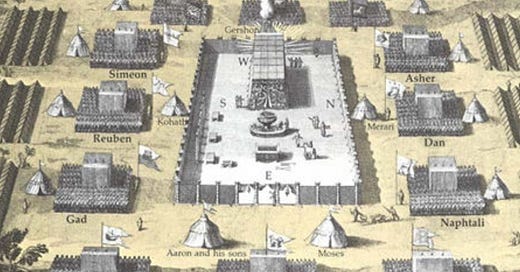Time and Space: God is the creator of all time and space, viewing Old and New Testaments as a complete, finished work, not a linear progression from beginning to end. Eternity is described as "always now".
Peace and Existence: The peace experienced by humans is compared to the "amazing peace that falls over us in times of absolute peace". Humans exist without self-awareness in the womb, similar to how babies gradually become self-aware by observing their bodies.
Sin and Death: Sin enters the picture after humanity is given the capacity to exist in a pure state. Sin originates in the mind and, when it reaches "full fruition," leads to death. From God's perspective, death is a beginning, not an end.
Offerings and Grace: The "fruit or works of our flesh" that we dislike can be offered to God as a "first fruit offering" with the guidance of the Holy Spirit. Romans discusses how trying to do good can even make things worse.
Feasts and Observances: The speaker notes that observing certain feasts is not an attempt to be Jewish, but rather these are practices God established to help people see beyond time and space.
Salvation: Humans are "working out this salvation in this time". God placed individuals in specific times and places to understand this process.
Living and Dying Gracefully: The beauty of living is found in "dying gracefully," exemplified by marriage and having children. This concept is linked to "apoptosis," where healthy cells fulfill their purpose and then are gracefully removed. The glory of man is compared to a flower that blooms beautifully and then dies.
Women's Beauty and Cycle: The outward beauty of women is designed to transition inward at a certain point, representing the gracefulness of acceptance. This process can feel like a loss, especially as children grow more independent.
Resurrection: Dying is not the end; rather, speaking of one's death allows for living in the resurrection, enabling Christ to live His resurrected life through believers.
Waiting for Each Other: In a group of believers, there's a need to "wait for each other" rather than rushing ahead.
Biblical Studies
Hebrews: The Bible study group started a study in Hebrews, a "rich book" that discusses God speaking "in previous times" to their fathers.
Numbers:
The Book of Numbers begins with a roll call of men in Israel aged 20 or more, able to serve in the army.
This census excluded Levites, women, and children. The total number of men counted was over 600,000.
The study of Numbers covers a 40-year wilderness period.
The purpose of the counting in Numbers is to identify who died off due to unbelief over 40 years, before moving into the Promised Land.
The narrative of Numbers teaches that people should relate to the Israelites' failings and understand that Christ came because humans cannot perfectly adhere to the laws.
Joshua and Caleb: They represent those who believed they could enter the Promised Land, unlike the "lying spies" who gave an "evil report". God showed them mercy, allowing them to enter while the unbelieving generation died off.
Levites: The Levites were not counted in the census and did not receive land because they were "separated" and replaced the firstborn. This separation connects back to Jacob cursing Simeon and Levi for their violence.
The tribes, their order, the Levites, firstborn, priests, and their setup around the tabernacle are all significant.
Personal Reflections
Idolatry and the Fast of Tammuz: The speaker anticipates reflections on the fast of Tammuz, one of two summer fasts commemorating the breaching of Jerusalem's walls. This period is seen as a time when God removes idolatry, which humans cannot sustainably remove themselves.
Tammuz (God): Tammuz was a fertility god of spring, associated with death and rebirth.
Idolatry of the Past: The speaker reflects on the "idolatry of remembering those [fertile] years" (20s and 30s) when they felt strong and life was easy.
June as a Time of Change: June, traditionally a "fun month" associated with "spring energy" and "ovulation time" for women, has been a month of unexpected changes for the speaker (tenant moving in, increased work for partner, funeral). This is interpreted as God removing idolatry tied to this specific time frame in their life.
Abiding and the Unknown: The speaker has spent June "abiding," waiting on God to work. There's a recognition of entering "unknown" or "rougher seas" beyond comfortable periods like summer, but also a challenge to the assumption that things will always be worse.
( AI generated notes from transcripts )










Share this post